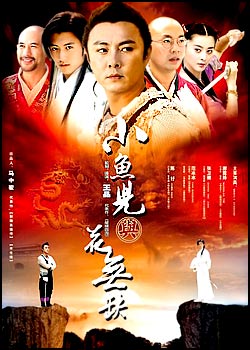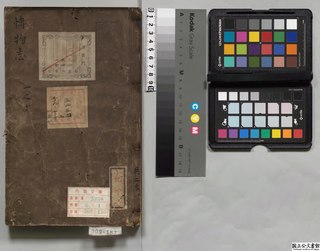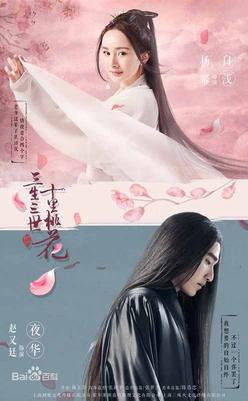
The Gang of Four was a Maoist political faction composed of four Chinese Communist Party (CCP) officials. They came to prominence during the Cultural Revolution (1966–1976) and were later charged with a series of treasonous crimes due to their responsibility for the excesses and failures in the Cultural Revolution. The gang's leading figure was Jiang Qing. The other members were Zhang Chunqiao, Yao Wenyuan, and Wang Hongwen.

Hua Guofeng was a Chinese politician who served as Chairman of the Chinese Communist Party and Premier of the People's Republic of China. The designated successor of Mao Zedong, Hua held the top offices of the government, party, and the military after the deaths of Mao and Premier Zhou Enlai, but was gradually forced out of supreme power by a coalition of party leaders between December 1978 and June 1981, and subsequently retreated from the political limelight, though still remaining a member of the Central Committee until 2002.

Zhang Chunqiao was a prominent Chinese political theorist, writer, and politician. He came to the national spotlight during the late stages of the Cultural Revolution, and was a member of the ultra-Maoist group dubbed the "Gang of Four".
Zhang Hua, courtesy name Maoxian, was a Chinese poet and politician of the Western Jin dynasty and the preceding state of Cao Wei. An accomplished poet, Zhang also authored the Bowuzhi, a compendium of entries about natural wonders and supernatural phenomena. His political career reached its zenith from 291 to 300, when he served as a leading minister during the de facto regency of Empress Jia Nanfeng. Zhang was considered an effective minister and, in conjunction with his colleague Pei Wei, helped ensure a period of relative stability within the Jin court. As the court fell into factional disputes from 299 to 300, Zhang rebuffed the rebellious overtures of the imperial relative Sima Lun and was executed when the latter seized power from the empress.

Jasmine Women is a 2004 Chinese film directed and co-written by Hou Yong in his directorial debut. The film is an adaptation of Su Tong's novel Women's Life (妇女生活) and depicts the emotionally troubled lives of 4 generations of Shanghainese women from the 1930s to the 1980s. Jasmine Women stars Zhang Ziyi and Joan Chen, who both portrayed multiple characters, as well as Jiang Wen, Lu Yi, and Liu Ye.

Invincible Shaolin, alternatively titled TheUnbeatable Dragon, Shaolin Bloodshed, and North Shaolin vs. South Shaolin, is a 1978 Hong Kong martial arts film directed by Chang Cheh and starring the Venom Mob. The movie chronicles one of Chang's tales of Shaolin's historic rivalries with the Qing Dynasty. It is one of the few Venom films featuring Wai Pak.
The Politics of Hunan Province in the People's Republic of China is structured in a dual party-government system like all other governing institutions in mainland China.

Three Kingdoms is a 2010 Chinese television series based on the events in the late Eastern Han dynasty and the Three Kingdoms period. The plot is adapted from the 14th century historical novel Romance of the Three Kingdoms and other stories about the Three Kingdoms period. Directed by Gao Xixi, the series had a budget of over 160 million RMB and took five years of pre-production work. Shooting of the series commenced in October 2008, and it was released in China in May 2010.
Wu-liu pai, or Wu-liu fa pai, also known as Xianfo — a school of Taoism with main focus on internal alchemy (neidan).

The Proud Twins is a Chinese-Hong Kong television series directed by Wong Jing, starring Dicky Cheung, Nicholas Tse, Fan Bingbing, and Yuan Quan. The series is adapted from Gu Long's novel Juedai Shuangjiao. It was first broadcast in 2005 in mainland China.

Zhang Bichen, also known as Diamond Zhang, is a Chinese singer. She was a member of the South Korean girl group Sunny Days. In 2014, she won the Chinese singing contest The Voice of China.
The following lists events in the year 1980 in China.

Bowuzhi by Zhang Hua was a compendium of Chinese stories about natural wonders and marvelous phenomena. It quotes from many early Chinese classics, and diversely includes subject matter from Chinese mythology, history, geography, and folklore. The Bowuzhi, which is one of the first works in the literary genre of zhiguai "tales of anomalies; supernatural stories", records the earliest versions of several myths, such as the white yenü 野女 "wild women" living south of China in a society without men. Scholars have described the Bowuzhi as "a miscellany of scientific interest" and "an important minor classic".

Legend of Nine Tails Fox is a 2016 Chinese television series based on six tales in Strange Stories from a Chinese Studio by Pu Songling. It originally aired two episodes daily on Hunan TV, Sunday through Tuesday at 22:00, as well as being simultaneously broadcast online on Youku, Tencent, Sohu and iQiyi. The drama was directed by Liu Yufen, Gao Linbao and Xu Huikang, and stars an ensemble cast of actors. The drama is separated into six plots, based on the corresponding stories in the Strange Tales from a Chinese Studio.

Li Li-hua was a Chinese actress, better known as an actress from the Shaw Brothers Studio. In 1957, Li married Hong Kong actor and director Yan Jun (嚴俊).

Eternal Love, also known as Three Lives, Three Worlds, Ten Miles of Peach Blossoms, is a 2017 Chinese television series starring Yang Mi and Mark Chao, directed by Lin Yufen. It is based on the xianxia novel of the same name from 2015 by Tang Qi Gong Zi. The series was broadcast on Zhejiang TV and Dragon TV from 30 January to 1 March 2017.

Phenuiviridae is a family of negative-strand RNA viruses in the order Bunyavirales. Ruminants, camels, humans, and mosquitoes serve as natural hosts. Member genus Phlebovirus is the only genus of the family that has viruses that cause disease in humans except Dabie bandavirus.
The 2018 Shanghai Challenger was a professional tennis tournament played on hard courts. It was the eighth edition of the tournament which was part of the 2018 ATP Challenger Tour. It took place in Shanghai, China between 10 and 16 September 2018.
Ju Fu, courtesy name Xiaoxing, was a military officer of the state of Shu Han in the Three Kingdoms period of China. His name is sometimes rendered as Gou Fu.